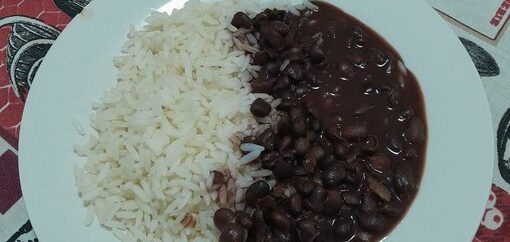The study analyzed data from the Family Budget Survey (POF) 2017-2018, which indicated a reduction in the consumption of natural or minimally processed foods by the population. The survey also used information from Vigitel – a telephone survey carried out by the Ministry of Health, which showed a downward trend in bean consumption between 2007 and 2019.
ADVERTISING
According to the data, regular consumption of beans among Brazilians decreased significantly from 2012 onwards, when 67,5% of the population claimed to consume them regularly, while in 2017 this number fell to 59,5%.
Projections indicate that by 2025, only 46,9% of Brazilians will maintain the habit of eating beans regularly. And this reduction in bean consumption is expected to continue until 2030, which is worrying, as the grain is an important source of nutrients.
“This trend is being confirmed year after year and this is very worrying. Beans, in addition to being a cultural symbol of Brazilian food, make up the menu of a healthy, balanced and balanced diet. The reduction in consumption indicates that people are replacing natural foods with ultra-processed and less healthy options”, explains nutritionist Fernanda Serra Granado, author of the study.
ADVERTISING
What explains the drop in bean consumption?
According to the researcher, some hypotheses can explain the drop in consumption: lack of time or difficulty in preparing natural or minimally processed foods at home; the fluctuation in bean prices; and the convenience and accessibility of ultra-processed and ready-to-eat foods.
Given this scenario, the nutritionist then decided to evaluate whether this trend of reducing bean consumption had any direct impact on the population's health. To achieve this, she added two new indicators to the analysis: low consumption (1 to 2 days per week) and moderate consumption of beans (3 to 4 days per week).
And, to their surprise, the results showed that the group that responded that they did not consume beans was 10% more likely to develop excess weight and 20% more likely to develop obesity. On the other hand, the group that stated that they regularly consume beans (5 or more days a week) showed a protective factor in the development of overweight (14%) and obesity (15%). The data was compared to moderate legume consumers during the week (3 to 4 days a week).
ADVERTISING
“These results only reinforce the importance of beans in the diet. It is a food rich in proteins, vitamins and minerals and integrates a healthy and nutritionally balanced diet. I highly recommend that families prioritize natural food in their meals and make it their choice,” he said.
(Source: Einstein Agency)
Read also
* The text of this article was partially generated by artificial intelligence tools, state-of-the-art language models that assist in the preparation, review, translation and summarization of texts. Text entries were created by the Curto News and responses from AI tools were used to improve the final content.
It is important to highlight that AI tools are just tools, and the final responsibility for the published content lies with the Curto News. By using these tools responsibly and ethically, our objective is to expand communication possibilities and democratize access to quality information. 🤖




